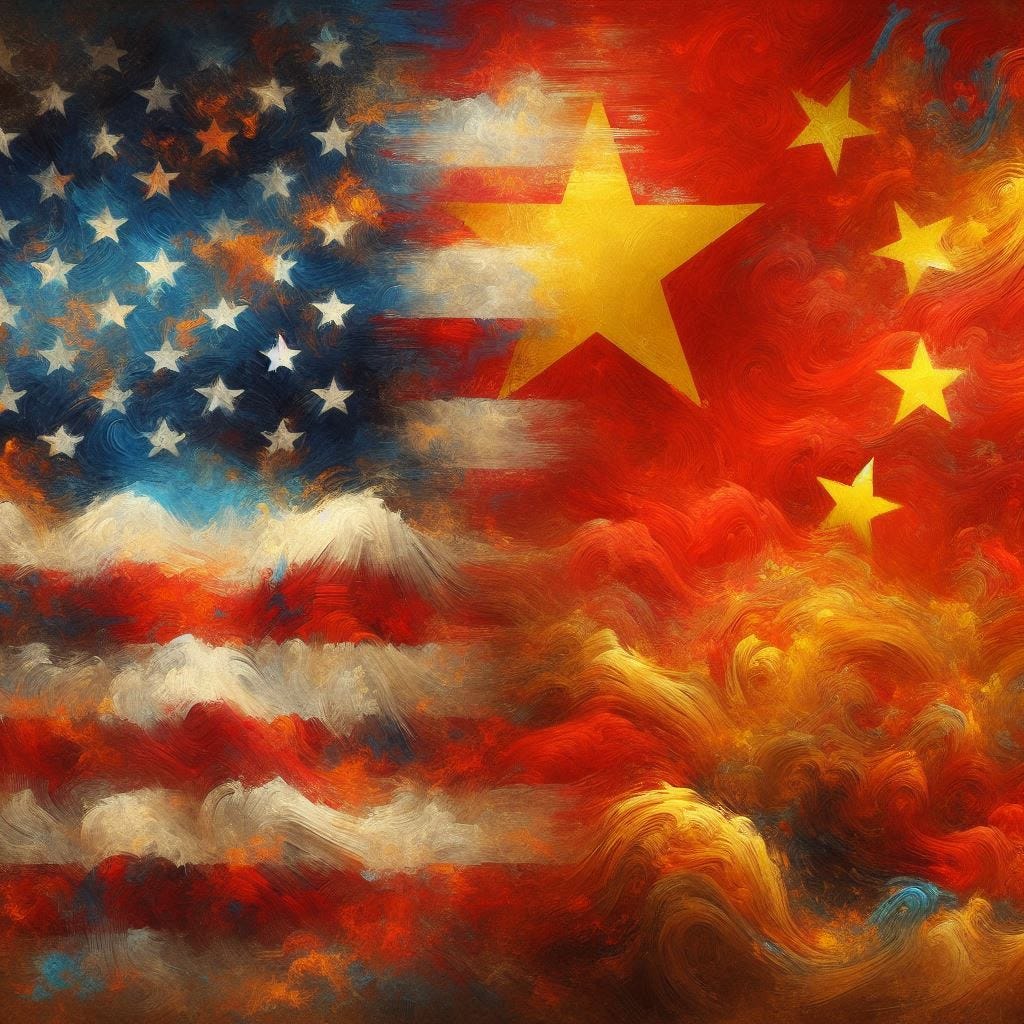Weekly Roundup: Political Exemptions to Trade Wars
Tariffs, Tech Giants, and the PRC Playbook: How U.S. Firms Are Navigating a Politicized Economy
A few weeks ago, I wrote about CEOs, particularly tech CEOs, “go along to get along attitude” in politics.
Business environments change, new policies have to be followed, and new administrations have to be dealt with, whether we like them or not. It wasn’t too long ago that corporations were “woke.”
It may also be that there hasn’t really been any change. A few years ago, Google folded to some of its employees and pulled out of Project Maven, a DoD project designed to help servicemembers sift through intelligence in their fight against ISIS. Last week, Google removed its pledge to not use AI weapons for surveillance or war.
This past week, the lesson in the news cycle seems to be that when you grapple for power instead of principles—business principles, mind you, like open economies—you get burned. Regulation hasn’t gone away, tariffs provide more than a little uncertainty, and Europe, one of Big Tech’s largest markets, appears to have plenty of leverage to reciprocate damage to US companies. Meta can’t even seem to grovel its way to a dismissal of its anti-trust lawsuit, striking when you consider the treatment Mayor Adams or insurrectionists received.
Few firms have safely navigated the trade-war landscape; one is Apple, which many thought would be the biggest loser. Apple began by shipping their iPhones to India and then to the US in hopes of avoiding tariffs but ultimately won an exemption from President Trump. The Wall Street Journal’s editorial staff summed up the new eco-political environment better than anyone could, pointing out that the tariff exemptions “expose the fiction that foreign exporters pay the bulk of tariff costs,” else the PRC would absorb the tariff costs and no exemptions would be needed. Exemptions also place the government, not the market, in the position of picking winners and losers:
Tariffs are advertised in the name of helping American workers, but what do you know? They turn out to favor the powerful and politically connected. That’s the main message of President Trump’s decision to exempt smartphones and assorted electronic goods from his most onerous tariffs.
…
All of this exposes the arbitrary political nature of tariffs. Some industries benefit but others don’t. Too bad if you make shoes, or clothing, or thousands of other consumer products that must pay the tariffs but lack the political or market clout to win exemptions. Too bad, too, if you’re a small manufacturer that relies on a component from China but can’t afford a high-priced K Street lobbyist.
Welcome to the new tariff economy, where you still pay onerous taxes, endure punishing regulation, and now must also navigate the political minefield of arbitrary tariffs.
The parallels to the PRC economy are striking and should be worrying to anyone who values any semblance of economic freedom. I am wrapping up House of Huawei, a book about the rise of the telecom giant. It’s a great book to learn about modern Chinese history through one company's eyes as it navigated the PRC's changing economic and political landscape. Books like these also tend to bring to light historical narratives that may drive one group to action but are relatively forgotten by others. The Opium Wars is an example of this, cropping up multiple times throughout the book—something Westerners should keep in mind when searching for the motivation behind China’s revisionism.
It also became apparent to me, that despite the claims of Chinese companies, they are not independent entities like they are in America. At some point in the 2000s, Huawei brought in a Party member as an official position to keep the company in lockstep with national priorities. A talk from a venture capitalist I went to last week said about doing business in China: “When the state asks you to invest in something, you do it. It’s like paying a tax.”
Perhaps the economic and political environment in the PRC will ultimately be good training for American tech. Last week, testimony from Sarah Wynn-Williams, a former Facebook policy executive, said “she witnessed Zuckerberg and other top brass lie to Congress and “repeatedly undermine US national security and betray American values” in a failed effort to appease Beijing and gain access to the Chinese market.” Perhaps our new economic environment isn’t that different. Too bad.
In other news
Meta faces £1.8bn lawsuit over claims it inflamed violence in Ethiopia
Trump directs agencies to quietly repeal regulations — without public notice
On Monday evening, in a letter addressed to all DOJ employees, deputy attorney general Todd Blanche announced that the agency would deprioritize certain criminal prosecutions against crypto businesses, including failures to prevent money laundering and obtain money transmission licenses. As part of the change, the DOJ will disband its National Cryptocurrency Enforcement Team (NCET), a unit that specializes in investigating crypto-related criminality.
New, bi-partisan bill, the “No Fakes Act,” aims to "protect the voice and visual likenesses of individuals and creators from the proliferation of digital replicas created without their consent."
It would further address the use of non-consensual digital replications in audiovisual works or sound recordings by:
Holding individuals or companies liable if they distribute an unauthorized digital replica of an individual’s voice or visual likeness
Holding platforms liable for hosting an unauthorized digital replica if the platform has knowledge of the fact that the replica was not authorized by the individual depicted
Excluding certain digital replicas from coverage based on recognized First Amendment protections



